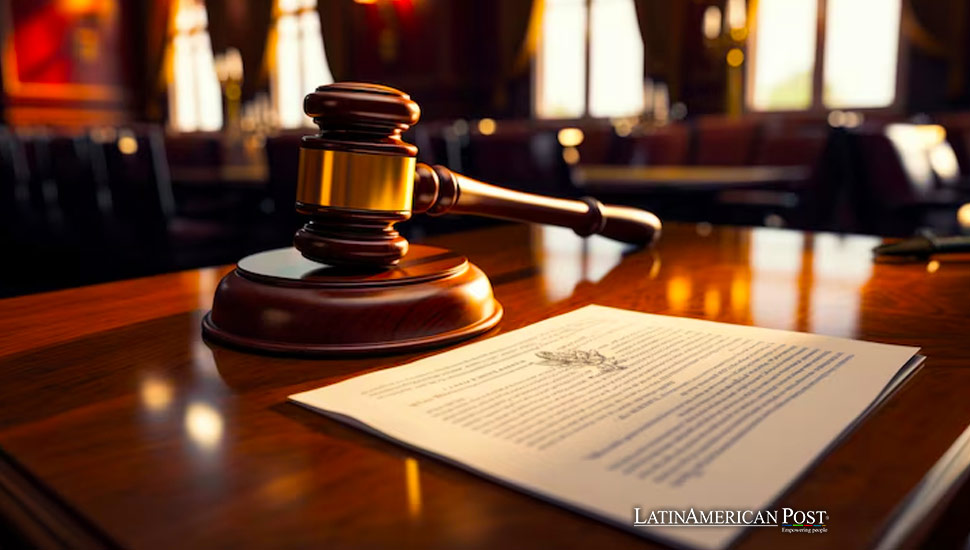Barbados’ Push for Tribunal on Slavery Reparations Gains Momentum

Amid rising global support, Barbados and other Caribbean and African nations advocate for a new international tribunal to address the long-standing impacts of transatlantic slavery and secure reparations, marking a pivotal moment in international justice and human rights.
In a significant development that could reshape historical accountability and reparations frameworks, nations from the Caribbean and Africa are rallying for the establishment of a special international tribunal to address the centuries-old grievances and legacies of transatlantic slavery. This initiative seeks to acknowledge the profound injustices suffered and rectify them in a tangible way.
David Comissiong, the Barbados ambassador to the Caribbean Community (CARICOM) and a vocal advocate for reparations, emphasized the necessity of this tribunal during the third session of the Permanent Forum on People of African Descent (PFPAD) in Geneva. According to Comissiong, existing international legal mechanisms are ill-equipped to handle the complexity and magnitude of claims related to the transatlantic slave trade, which saw at least 12.5 million Africans forcibly transported and sold into slavery by European entities over four centuries.
The proposed tribunal aims to fill this gap, providing a dedicated platform for systematically addressing the repercussions of these historical atrocities. Establishing such a tribunal requires a positive decision from the U.N. General Assembly, a process that Comissiong and his counterparts are fervently advocating for.
Historical Context and Modern Implications
Transatlantic slavery has left a lasting scar on the socio-economic and cultural fabric of numerous nations, and this dark period involved the mass abduction and enslavement of Africans, who were then subjected to brutal conditions across the Americas and other parts of the world. The legacy of this system is visible today in the form of racial disparities, economic inequities, and ongoing discrimination against descendants of those enslaved.
The conversation around reparations has gained momentum in recent years, reflecting a growing recognition of the need for comprehensive measures to address these historical injustices. U.N. Secretary-General Antonio Guterres, in a video message to the PFPAD, reiterated that racism today is rooted in this history of enslavement and colonialism, advocating reparations as a critical component of addressing racial injustices.
Global Support and Challenges
Support for the tribunal has been building, with representatives from countries like Guyana and Venezuela echoing Comissiong’s call at the PFPAD session. The push for reparations is part of a broader global reckoning with colonial histories and their contemporary impacts. However, the path to establishing the tribunal is fraught with challenges. Key hurdles include securing cooperation from countries historically involved in the slave trade and overcoming complex legal issues related to identifying responsible parties and determining appropriate remedies.
The initiative holds particular significance in Latin America, a region profoundly shaped by the transatlantic slave trade. Countries like Brazil, which received the most significant number of enslaved Africans, and others in the Caribbean continue to grapple with the deep-seated effects of slavery. The tribunal could serve as a critical step towards healing and restitution for these nations, offering a formal mechanism to address grievances that have persisted for generations.
Economic and Social Implications
Beyond the moral and ethical imperatives, the tribunal could have significant economic and social implications. For many affected communities, reparations could provide crucial resources for economic development, educational opportunities, and social welfare programs. These resources would be instrumental in correcting historical inequities and supporting the empowerment of communities of African descent across the globe.
Also read: Barbados Prime Minister Advocates for Global Reparations Dialogue in London Speech
As the international community continues to debate this issue, the proposed tribunal represents a landmark effort to institutionalize the reparations process. It embodies a collective endeavor to acknowledge historical wrongs and actively address their long-term consequences. For tribunal supporters, the following steps involve intensive advocacy and diplomatic efforts to garner the necessary support at the U.N. General Assembly.
The advocacy for a special tribunal on slavery reparations by Caribbean and African nations is a testament to the enduring struggle for justice and equality by people of African descent worldwide. While the road ahead is undoubtedly challenging, the growing global momentum suggests a significant shift towards acknowledging and addressing historical injustices. The potential establishment of this tribunal could mark a historic milestone in the worldwide fight for reparative justice and human rights, setting a precedent for how we address other legacies of human rights abuses worldwide.





